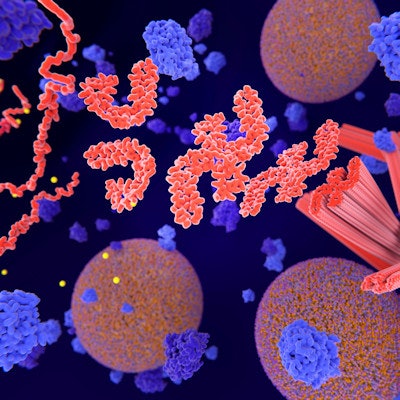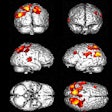
Men and women who had been widowed and who had elevated beta-amyloid levels on PET scans were also more likely to have accelerated cognitive decline associated with Alzheimer's disease, according to a study published online February 26 in JAMA Network Open.
The study findings highlight the biological processes behind a previously recognized risk factor for Alzheimer's disease, wrote a team led by Kelsey Biddle of Brigham and Women's Hospital in Boston.
"Despite strong evidence linking late-life widowhood with cognitive decline and dementia, the underlying mechanisms are not well understood," the group noted. "Moreover, to our knowledge, the association of widowhood with cognition in individuals with biomarker evidence of early Alzheimer's disease pathology has not been investigated."
Alzheimer's disease is projected to triple in prevalence by 2050, Biddle and colleagues wrote. As such, it's crucial to recognize which individuals are at risk and to develop preventive treatments. So Biddle's team sought to assess whether widowhood status and level of brain beta amyloid were associated with cognitive decline.
The study included 257 married, widowed, and unmarried participants in the Harvard Aging Brain Study. All were apparently cognitively unimpaired and all underwent a baseline evaluation of neocortical beta-amyloid levels with a positive PET scan with carbon 11-labeled Pittsburgh Compound B (PiB) between September 2010 and February 2017.
Of the 257 study participants, 59.5% were women, 56.4% were married, 30% were unmarried, and 13.6% were widowed. Mean age was 73 years. Compared to married participants, widowed study participants tended to be older (mean age, 77.6), female (72.7%), and of lower socioeconomic status.
Each participant also had four annual cognitive assessments using the Preclinical Alzheimer Cognitive Composite (PACC) tool. The researchers noted each participant's socioeconomic status, depression level, cardiovascular disease risk, diabetes history, smoking status, and levels of social engagement and of emotional support from others.
The team found that the rate of cognitive decline as measured by the longitudinal PACC scores was higher among those participants who were widowed compared with those who were married, even after adjustment for age, sex, socioeconomic status, depression, and beta-amyloid levels (p = 0.002). The authors also found that widowed study participants with higher baseline beta-amyloid levels showed sharper cognitive decline (p = 0.02), "indicating both independent and interactive associations of beta-amyloid levels and widowhood with cognition."
Finally, in a secondary analysis, the team found that the rate of cognitive decline was three times faster among widowed study participants than among married study participants with high beta-amyloid levels at baseline (p < 0.001).
"These findings illustrate the importance of widowhood as a clinically relevant risk factor for cognitive decline, and they provide new evidence that widowed men and women are a distinct subgroup of older adults who are particularly susceptible to progression in early Alzheimer's disease," the researchers wrote.
More study is necessary, according to Biddle and colleagues.
"Further research and intervention strategies are needed to ameliorate psychosocial and biological processes underlying cognitive decline in widowed older adults," they concluded.





















